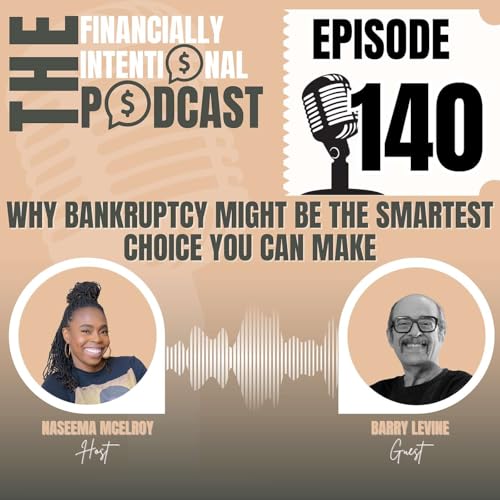
Why Bankruptcy Might Be the Smartest Choice You Can Make - Episode 140
Failed to add items
Add to basket failed.
Add to Wish List failed.
Remove from Wish List failed.
Follow podcast failed
Unfollow podcast failed
-
Narrated by:
-
By:
About this listen
Send us a text
In today's episode, I sit down with Barry Levine, a bankruptcy lawyer with more than 40 years of experience, to talk about what really happens when people file for bankruptcy. We break down the fear and confusion around money problems and explain how bankruptcy can be a tool to get a fresh start. I also share my own story of going through bankruptcy in my 20s and what I learned from it. Barry gives simple, honest advice on what to expect, how the process works, and why it’s not the end of the world.
About our guest:
Barry Levine is a Massachusetts-based bankruptcy attorney with more than 30 years of experience helping individuals and small business owners through financial crisis. Known for his calm, practical approach, he guides clients who feel scared, overwhelmed, and out of options to understand the system, explore their choices, and find a clear path forward.
Barry believes fear, not just debt, is what keeps people stuck. His role is to bring order to the chaos by applying decades of legal expertise to restore stability and control. With a career that began in a hands-on Boston office during law school, he has built a practice that is detail-oriented, outcome-focused, and always grounded in compassion.
The Law Office of Barry R. Levine
Support the show
---
Please join me here, and follow me on social media, Instagram, and Facebook.
Need help getting started on your path to financial freedom? Start Here
Join the Financially Intentional Community
Oh and please subscribe and leave a review on whatever app you're using to stream this podcast.
Get my book Smart Money



